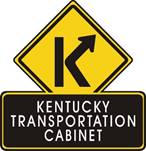Kentucky Transportation Cabinet joins NHTSA in promoting shared safety practices by all highway users
FRANKFORT, Ky. (May 1, 2023) – May is National Motorcycle and Bike Safety Awareness Month and Kentuckians are reminded to watch out for each other on the road – whether on two wheels or four.
“We’re entering the warmer months, which typically means more motorcycles and bicycles on our roadways,” said Gov. Andy Beshear. “Safety is a mutual responsibility and we encourage all road users to do their part in making sure everyone makes it to their destination safely – every trip, every time.”
The Kentucky Transportation Cabinet’s (KYTC) Office of Highway Safety (KOHS) is joining the National Highway Traffic Safety Administration (NHTSA) in reminding all road users to work together to help prevent crashes, injuries and deaths on Kentucky roadways.
A motorcycle or bicycle is a vehicle with all of the rights and privileges of any motor vehicle; however, as one of the smallest vehicles on the road, a motorcycle or bicycle may be in a vehicle’s blind spots.
“We’re asking motorists to take simple yet important actions when behind the wheel,” said KYTC Secretary Jim Gray. “Taking the extra step of looking twice at intersections and before changing lanes or making turns could be the difference between life and death for a motorcyclist or bicyclist.”
In 2022 there were 1,575 crashes involving motorcycles in Kentucky, resulting in 1,198 injuries and 99 deaths (99 motorcyclists). Of those crashes, 824 involved a motorcycle and at least one other vehicle. Bicyclists were involved in 344 crashes resulting in 229 injuries and 13 deaths. Of those crashes, 340 involved at least one other vehicle.
“Our Cabinet is committed to continuing our efforts to improve infrastructure and accessibility for everyone, and we ask that everyone does their part to obey the rules of the road, said Secretary Gray.”
The KOHS offers the following tips for drivers:
- Put the phone down and pay attention. Driving while distracted increases risk for all road users;
- Perform a regular visual check by checking mirrors and blind spots before entering or exiting a lane of traffic, and at intersections;
- Use a turn signal before changing lanes or merging with traffic to alert others of your intentions;
- Don’t be fooled by a flashing turn signal on a motorcycle. Motorcycle signals are often not self-canceling and riders sometimes forget to turn them off. Wait to be sure the motorcycle is going to turn before you proceed;
- Obey the speed limit. Driving at the posted limit allows you to see, identify and react to possible obstacles;
- Drive sober. Alcohol and drugs affect judgment, balance and reaction time. Always make a plan for a safe ride home;
- Buckle up. Wearing a seat belt gives you the best protection against injury and death;
- Allow at least a three-second following distance between you and the vehicle in front of you;
- Do not use designated bike lanes for parking, passing or turning; and
- Pass to the left of a bicycle, allowing at least three feet clearance.
The KOHS offers the following tips for motorcyclists:
- Wear a DOT-compliant helmet;
- Use turn signals for every turn or lane change, and combine with hand signals;
- Wear brightly colored protective gear and use reflective tape and stickers to increase visibility;
- Position in the lane where most visible to other drivers;
- Pay attention by avoiding any action that takes your eyes, your ears or your mind off the road and traffic;
- Obey the speed limit. Driving at the posted limit allows you to see, identify and react to possible obstacles;
- Ride sober. Alcohol and/or drugs can impair your judgment, coordination and reaction time; and
- Take a rider training course. Find information at www.ride.ky.gov.
The KOHS offers the following tips for bicyclists:
- Wear a properly-fitted helmet that meets that meets the Consumer Product Safety Commission standards;
- Use hand signals when changing lanes or turning;
- Wear brightly colored protective gear and use reflective tape and stickers to increase visibility;
- Pay attention by avoiding any action that takes your eyes, your ears or your mind off the road and traffic;
- Scan ahead for possible obstacles in your path, such as parked cars or cars pulling out or into parking spaces or driveways;
- Ride in the same direction as traffic;
- Check your equipment before riding. Make sure your brakes are working and tires are properly inflated;
- Never ride impaired. Alcohol and/or drugs can impair your judgment, coordination and reaction time.

